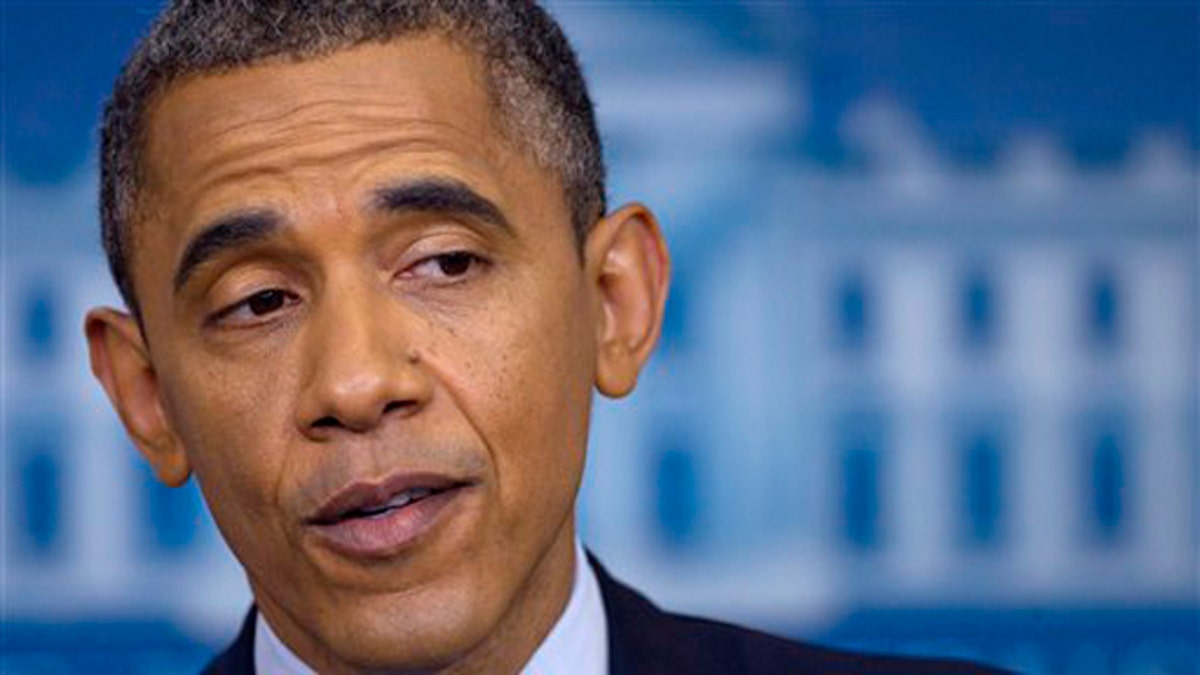
Watching President Obama flop around like a fish out of water, careening from gaffe to desperation to dishonesty, I find myself searching for ways to put his troubling behavior into historic perspective.
Is this The Unmaking of a President? Or is it The Unmasking? Perhaps we are witnessing an American Tragedy. Or maybe we’re seeing final proof his election was The Great Mistake.
All those fit the facts, and lead to a shared conclusion. So far, the 2012 election has almost nothing to do with Mitt Romney. Even the GOP doesn’t love its choice, but the race is a dead heat because Obama is so disappointing.
His fall from grace does more than merely confirm the conventional wisdom that elections are a referendum on the incumbent. Notwithstanding White House efforts to make the race about something or someone else, Obama remains the straw that stirs the drink.
But what a strange straw he is. Far stranger than we knew.
The man who campaigned against the “torture” of war prisoners boasts of killing suspects while taking no prisoners. He called rising debts “un-American” before setting a new record for borrowing. He railed against the imperial presidency before stretching it beyond recognition. The former law-school instructor tried to bully the Supreme Court.
Just who is Barack Obama? The question lingers like an itch that can’t be scratched.
A partial answer, the flattering part, was provided by his history-making 2008 victory. But his failure to unite the country and lack of interest in the actual work of governing provide an alternative view. More recently, with the world spinning out of control and the economy stuck in slow speed, he looks dangerously reckless.
And now comes more unsettling information, thanks to a new biography by David Maraniss, a Washington Post writer and editor.
Earlier excerpts of “Barack Obama, The Story,” made headlines, with one showing Obama as a total pothead and another revealing that a key scene in one of Obama’s own books involved a composite character.
That was just the start. An early review of the full book suggests it will shatter much of what we thought we knew about him. It seems Obama’s memoir, “Dreams From My Father,” is chock full of characters he created to fit his narrative. Not once or twice, but virtually every time he wanted to explain breakthroughs in his celebrated search for identity.
“Throughout ‘Dreams,’ the moments that Obama has invented are precisely the occasions of his epiphanies — precisely those periodic aha! moments that carry the book,” Andrew Ferguson writes in his Weekly Standard review. “Obama wasn’t just inventing himself; he was inventing himself inventing himself.”
Without the fabrication, “not much is left,” Ferguson says. Obama’s memoir thus turns out to be a hologram of his life instead of the real thing.
Not incidentally, character invention is a trick Obama still uses. The straw men opponents he sets up in virtually every speech are the political equivalent of the technique he used in “Dreams.”
In both cases, we end up with fictional stand-ins for Obama and others. You have to wonder if he even knows the difference anymore between truth and fiction.
Still, his trick has worked political magic because, Ferguson writes, Obama “did in effect what so many of us have done with him. He created a fable about an Obama far bigger and more consequential than the unremarkable man at its center. He joins us, haters and idolaters . . . looking this way and that, desperately trying to see what isn’t there.”
The book confirms again that the mainstream media failed miserably to vet Obama four years ago. But here we are, and now what?
In a speech last week, Obama was in straw-man/fiction mode in trying to shift the focus from his record. Voters have a choice, he declared, between “two fundamentally different views of which direction America should take.”
Leaving aside the snide reviews — a rehash, too long, too lecturing — the speech fell short in a basic way. In outlining this “choice,” Obama neglected the first question voters face.
Who is Barack Obama?
To continue reading Michael Goodwin's New York Post column on other topics, including The New York Times and the NYPD, click here.








































